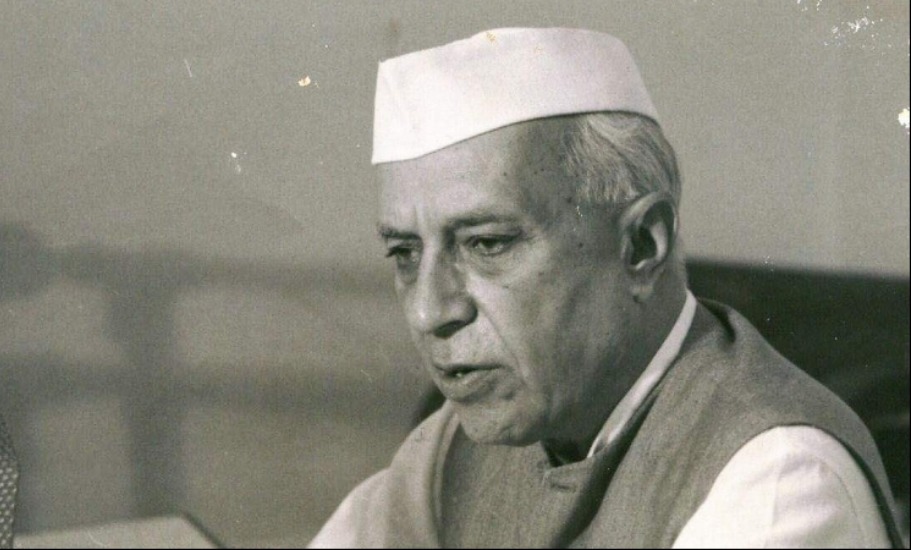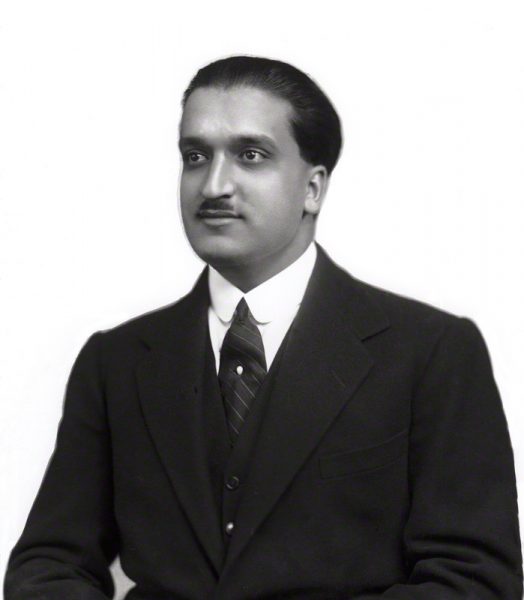
16 years of RTI and 75 years of secrecy around J&K’s accession to India
This year marks the 75th anniversary of the signing of the Instrument of Accession by Maharaja Hari Singh and Nayak believes disclosure of the papers will serve a larger public interest

2021 marks the 16th anniversary of the Right to Information Act (RTI) and in this 16th year something interesting happened: The Central Information Commission (CIC), which was constituted under the RTI Act and whose jurisdiction extends over all central public authorities, agreed with an applicant that the Nehru Memorial Museum and Library (NMML) should make public certain documents related to events around Jammu and Kashmir’s accession.
Venkatesh Nayak, an RTI activist and member of the Commonwealth Human Rights Initiative, recently came across an interview transcript that provides a sneak peek into the Sir Roy Bucher’s papers on J&K. Sir Roy, the second commander-in-chief of the Indian Army, had given the interview to noted biographer BR Nanda a few decades after his retirement, and the transcript is available with the library.
In it Bucher – the army chief between January 1, 1948, and January 15, 1949 – made multiple references to files related to J&K for the period 1947-49 compiled by him and given to NMML.
This year marks the 75th anniversary of the signing of the Instrument of Accession by Maharaja Hari Singh and Nayak believes disclosure of the papers will serve a larger public interest.

Information Commissioner Uday Mahurkar hesitated to use the expression “larger public interest”, as contended by the applicant, but agreed that there was a “national interest” to be served by the disclosure.
Venkatesh said the library had kept these documents closed from public scrutiny on the instructions of the Ministry of External Affairs (MEA). He wanted to inspect the files and records submitted by Bucher and other details such as a list of documents held by the prestigious library.
Also read: India needs robust courts to stop lock-up murders, police atrocities
To make his case, Nayak also relied upon the Ministry of Defence’s June 12, 2021, order setting a clear timeline for compilation, publication, archiving and declassification of the histories of India’s wars and operations. The order said that “records should ordinarily be declassified in 25 years” and “records older than 25 years should be appraised by archival experts and transferred to the National Archives of India once the war/operations histories have been compiled”.
“In view of the said policy of the Government of India, vis-à-vis declassification and archiving of records relating to India’s war histories, this appellant believes that the information sought… squarely falls within its ambit and purpose,” Nayak said.
In its order, the CIC noted that the library’s central public information officer (CPIO) had submitted that, not withstanding the MoD policy, NMML did not have any official intimation from the government to disclose this information.
However, the RTI Act does not specify that the CPIO has to seek permission from the “third party” or higher officials. The Act allows 20-year-old information to be disclosed except under three clauses of Section 8, which deal with national interest. Neither the MEA nor NMML has claimed that national security will be affected by the disclosure of the papers.
Nayak further contended that putting the papers in the public domain will help counter the controversy over the actual date of signing of the Instrument of Accession and its acceptance. The official dates happen to be 26th and 27th of October, 1947, respectively.
The NMML has already given details of documents that are closed to the public, but refused to share the Bucher papers, citing instructions from the MEA. “The respondent [NMML] further averred before the commission that PIO has rightly pointed out that until and unless the government gives instruction to NMML to make the said information public they cannot do so,” the CIC said.
No Grounds for Nondisclosure
Why does the MEA want to withhold the papers? Under what grounds has the library denied access to them? It does not even give a reason for doing so.
Generally, CPIOs delay response by exploiting the third-party notice procedure as provided under Section 11 of RTI Act. In this case the NMML could have used the excuse and sent Nayak’s request to the MEA. When some ancient documents reach the library, they cannot be equated with files considered “third party information”. In any case, Section 11 is not a ground for denial of information.
Interestingly the CIC ordered the library to approach MEA officials, but did not ask it to follow procedures under Section 11. If the CPIO follows Section 11 procedures, they will retain the power of discretion; they won’t need permission from the MEA. If it is assumed that the ministry is third party, and as the documents are sourced from the ministry, the CPIO has to give notice to it under Section 11 only when they “intend” to make the information available. However, the CIC’s “advice” to “approach higher officials for necessary permission” overrides all those issues.
Also read: Hyderabad rape: Suspected ‘suicide’ of accused Raju adds to mishmash
The CIC order, dated October 10, 2021, recognising the “national interest” in disclosure of the files is a welcome judgement on the eve of the 16th anniversary of RTI Act (October 12). However, it concluded the order with just an “observation”. The order did not, as it were, “order” the library to disclose the papers. Instead it suggested that the library’s CPIO “take up the matter with higher officials” and “secure the necessary permission”. Without the “necessary permission”, the CPIO cannot share the information with the applicant.
The CIC said: “Keeping in view the facts of the case and the submissions made by both the parties, the commission observes that the objective of the appellant (is) in the national interest. Therefore, the commission directs the CPIO to take up the matter with higher officials of the respondent authority and cite this order of the commission and secure the necessary permission from them before sharing the information with the appellant.”
The CPIO will have fulfilled the “order” the moment they take up the matter with MEA officials – and then Nayak will not be able to complain about non-compliance.
In this way, the order dilutes the legal guarantee of access to information provided by the Act.
M Sridhar Acharyulu is former central information commissioner and dean, School of Law, Mahindra University, Hyderabad.

